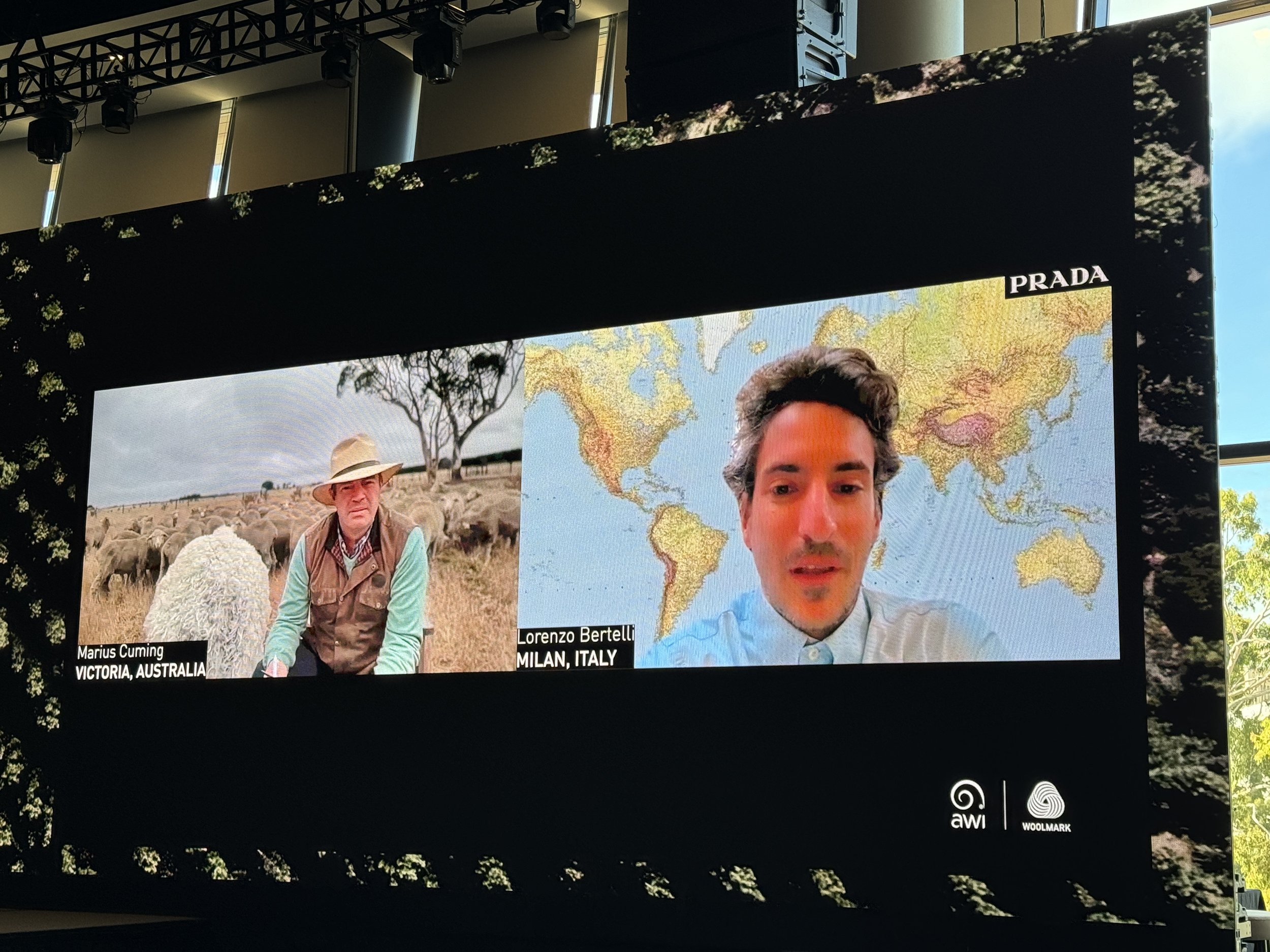Celebrating wool from Farm to Fashion at the IWTO 2024 Congress is Adelaide, Australia
In April, our CEO, Matthew Rowe, was fortunate to attend the 93rd Congress of the International Wool Textile Organization (IWTO) in Adelaide, Australia. As the Head of Canada’s delegation to the IWTO, he was pleased to be able to fly the flag, learn about the latest industry trends and connect with new buyers and partners for Canadian wool.
Gathering over 350 participants from around the world, the IWTO Congress is the wool event of the year. South Australia, where the city of Adelaide is located, is notable for producing 30% of Australia's merino wool, as well as its world-famous Chardonnay. This year’s Congress brought together woolgrowers, processors, spinners, designers, and retailers under the main theme of “from Paddock to Product” or “Connecting farm to Fashion.” Key trends discussed included tackling carbon emissions, better promoting wool as a natural and sustainable fibre, and expanding opportunities for strong wool, particularly relevant to Canada.
Initiatives from wool "giants" like New Zealand were especially noteworthy. Renowned for its strong wool suitable for carpets and upholstery, similar to most of the Canadian wool clip, New Zealand announced a significant plan. The country's Minister of Agriculture revealed a government initiative to procure wool carpets for government offices and public buildings—an initiative that we hope to mirror in Canada. Despite being the sole Canadian attendee, the presence of our industry was prominent, particularly in the strong wool sessions. Our leadership in the IWTO’s Wool Interiors Working Group was consistently praised by strong wool colleagues from New Zealand, the UK, and other countries. Chaired by Carol Sebert, founder of the Ontario-based premium flooring company Creative Matters, the working group is addressing market barriers and developing better marketing approaches to support companies selling wool products for residential and commercial applications.
Creative Matters may be familiar from a few years ago when we partnered with them and Interior Designer Sarah Richardson to produce the first-ever luxury rugs made from 100% Canadian wool, a project that led to an ongoing social partnership and a Canadian wool product line.
Major fashion brands also made notable contributions, reshaping the image of wool for consumers. Lorenzo Bertelli, Executive Director of Prada, discussed the brand’s efforts to combine wool's superior performance with sustainable on-farm environmental management. Jeremy Berres-Paul, Senior Manager at Huckberry, talked about the American menswear brand’s mission to create an innovative retail experience centered around their line of merino wool performance wear—an apparel segment largely dominated by synthetics. Dion Lee, one of Australia’s most renowned fashion designers, highlighted how his brand is redefining Australian identity by using local wool in his avant-garde suiting.
On the farming and wool harvesting side, impressive innovations promise to optimize the efficiency and environmental footprint of wool growing. This is particularly relevant for large-volume producing countries such as Australia and South Africa, where average flock sizes number in the tens of thousands. For example, Dr. Phil Hynd from the University of Adelaide discussed a plant extract-based injection that, when administered to sheep, creates a uniform weak point in the animal’s wool. After a few weeks of growth, the fleece can then be removed in one piece using a simple machine agitator that requires little training to operate. Lara Phillips of Pollination Group spoke about emerging carbon insetting opportunities for Australian farms, which can create scalable win-win scenarios for climate, biodiversity, and wool growers. While Canada’s sheep population is much smaller than that of Australia or New Zealand, these research findings are inspiring and believed to be adaptable to the Canadian context. This is especially relevant as the impacts of climate change and biodiversity crises are increasingly felt closer to home.
The Canadian Wool Council is proud to have put Canada on the world wool map by securing its first-ever seat at the IWTO in 2019. Since then, Canadian value-chain delegations have been led to multiple IWTO Congresses, and the first-ever IWTO Roundtable in Canada was hosted in December 2023 in Montreal. The benefits of participating in these global gatherings cannot be overstated. From building long-term business relationships and securing contracts to learning about the latest scientific, technological, and marketing advancements in the wool fiber industry, these events are essential for anyone interested in the wool business. The revitalization of our industry depends on developing export markets for our wool products, and the fact that our industry is now connected to the world like never before is highly encouraging.








